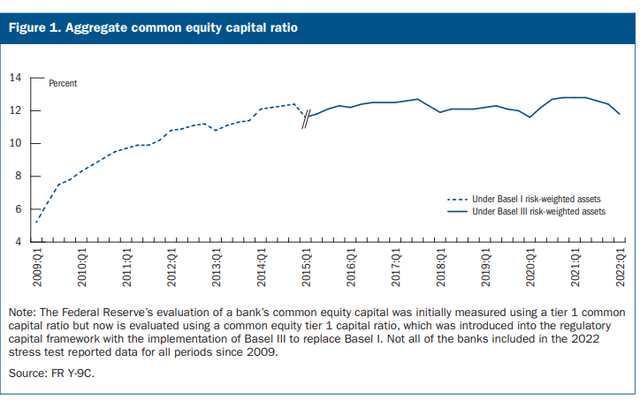Is An Escape To The Country Right For You? A Realistic Look

Table of Contents
The Allure of Country Living: Weighing the Pros
The romantic notion of a country escape often centers around peace, community, and affordability. Let's examine these alluring aspects of rural living in more detail.
Peace and Quiet: Embrace the Serenity
One of the most significant draws of country living is the unparalleled peace and quiet. Escape the constant noise pollution of urban areas and immerse yourself in the serenity of nature.
- Reduced stress and improved mental well-being: Studies show that exposure to natural environments significantly reduces stress levels and improves mental well-being. The absence of constant traffic noise and urban clamor contributes to a calmer, more relaxed lifestyle.
- More opportunities for outdoor activities: Hiking, cycling, fishing, gardening – the countryside offers a wealth of outdoor activities right on your doorstep. Enjoy fresh air, sunshine, and the beauty of the natural world.
- Darker night skies for stargazing: Light pollution is significantly less in rural areas, allowing for breathtaking views of the night sky and opportunities for stargazing.
Community and Connection: Forge Stronger Bonds
Rural communities often boast a strong sense of neighborly connection and shared identity rarely found in larger cities.
- Stronger neighbourly bonds and a greater sense of belonging: People in rural areas often know their neighbours and support each other, fostering a greater sense of community and belonging.
- More opportunities to get involved in local events and activities: From farmer's markets and community festivals to volunteering opportunities, there are often numerous ways to engage with your local community and build relationships.
- A slower pace of life, fostering genuine connections: The slower pace of life in the countryside allows for more meaningful interactions and genuine connections with others.
Affordable Living (Potentially): Weighing the Costs
While not universally true, rural areas can offer more affordable housing options compared to urban centers. However, it's crucial to consider the full picture.
- Lower property taxes in some locations: Property taxes can be lower in certain rural areas, representing significant savings.
- Larger properties for similar or lower prices than in urban areas: You might find a larger house or more land for a similar price, or even less, than a smaller property in a city.
- However, factor in potential higher transportation costs: This is a crucial caveat. The convenience of public transportation and proximity to amenities is often lacking in rural areas, leading to higher transportation costs.
The Realities of Rural Life: Facing the Cons
While the idyllic image of country living is enticing, it's essential to acknowledge the challenges. A realistic assessment of these potential drawbacks is vital before making a move.
Limited Amenities and Services: Consider the Commute
Access to essential services and amenities is often a key difference between city and country life. Rural areas frequently have limited options.
- Longer commutes to work, school, and essential services: Expect longer commutes to work, schools, hospitals, and shopping centers. This can significantly impact your daily routine and increase transportation costs.
- Fewer shopping and entertainment options: The variety of shops, restaurants, and entertainment venues is often drastically reduced in rural areas compared to cities.
- Potentially longer wait times for medical appointments: Access to specialized medical care might be limited, resulting in longer wait times for appointments.
Isolation and Loneliness: Maintaining Social Connections
The reduced population density in rural areas can lead to feelings of isolation and loneliness if not properly addressed.
- Reduced access to social events and spontaneous gatherings: The opportunities for casual social interactions are often fewer in rural settings.
- Importance of proactive social engagement: It's crucial to actively seek out social connections and engage with the community to combat potential feelings of isolation. Joining local groups or clubs is highly recommended.
- Consider the impact on mental health: The potential for social isolation should be carefully considered, particularly for those prone to loneliness or mental health challenges.
Higher Transportation Costs: The Price of Convenience
Owning a car is often a necessity in rural areas due to limited or non-existent public transportation.
- Increased fuel costs and car maintenance: Longer commutes mean higher fuel consumption and increased wear and tear on your vehicle.
- Potential challenges during harsh weather conditions: Winter storms or heavy snowfall can make driving considerably more challenging and potentially dangerous.
- Consider the cost of vehicle insurance: Insurance costs can be higher depending on your location and the type of vehicle.
Making the Right Decision: Practical Considerations
Before you embark on your countryside escape, carefully consider these practical aspects.
Financial Planning: Assess Your Budget
Moving to the country requires careful financial planning. Don't underestimate the costs involved.
- Property prices and taxes: Research property prices and tax rates in your target area. Factor in potential renovation or maintenance costs.
- Transportation costs: Account for increased fuel costs, car maintenance, and potential public transportation expenses.
- Potential loss of income if changing jobs: If you're changing jobs, factor in the potential loss of income during the transition period.
Job Market Research: Secure Your Employment
Research job opportunities in your chosen rural area before making the move.
- Remote work possibilities: Explore remote work opportunities that would allow you to live in the countryside while working for a company located elsewhere.
- Local employment options: Research local employment opportunities and assess their availability and suitability to your skills and experience.
- Commuting distance and time: If commuting is necessary, carefully consider the distance and the time commitment involved.
Community Involvement: Become Part of the Fabric
Explore opportunities for community involvement in your potential new location. This will help you integrate into the local fabric.
- Local groups and organizations: Research local groups and organizations that align with your interests.
- Volunteer opportunities: Volunteering is a great way to meet people and become involved in your new community.
- Social activities: Find local social activities and events to meet new people and build relationships.
Conclusion
An escape to the country offers a unique lifestyle with both significant advantages and challenges. Carefully weighing the pros and cons of rural living—from the peace and quiet to the potential isolation—is crucial. Thorough research, financial planning, and realistic expectations are key to making an informed decision. Before you pack your bags for your countryside escape, take the time to honestly assess whether this lifestyle truly aligns with your needs and preferences. Is an escape to the country right for you? Only you can answer that question.

Featured Posts
-
 Us Band Hints At Glastonbury Performance Unofficial Confirmation Creates Buzz
May 24, 2025
Us Band Hints At Glastonbury Performance Unofficial Confirmation Creates Buzz
May 24, 2025 -
 The Underappreciated Potential Of News Corps Business Units
May 24, 2025
The Underappreciated Potential Of News Corps Business Units
May 24, 2025 -
 2025 Porsche Cayenne Interior And Exterior Design Image Gallery
May 24, 2025
2025 Porsche Cayenne Interior And Exterior Design Image Gallery
May 24, 2025 -
 Best And Worst Days To Fly For Memorial Day Weekend 2025
May 24, 2025
Best And Worst Days To Fly For Memorial Day Weekend 2025
May 24, 2025 -
 Avrupa Borsalari Ecb Faiz Kararindan Sonra Nasil Etkilendi
May 24, 2025
Avrupa Borsalari Ecb Faiz Kararindan Sonra Nasil Etkilendi
May 24, 2025
Latest Posts
-
 Amsterdam Stock Market Three Days Of Significant Declines Totaling 11
May 24, 2025
Amsterdam Stock Market Three Days Of Significant Declines Totaling 11
May 24, 2025 -
 Stocks Surge 8 On Euronext Amsterdam Trumps Tariff Pause Fuels Rally
May 24, 2025
Stocks Surge 8 On Euronext Amsterdam Trumps Tariff Pause Fuels Rally
May 24, 2025 -
 Major Losses Continue Amsterdam Stock Exchange Down 11
May 24, 2025
Major Losses Continue Amsterdam Stock Exchange Down 11
May 24, 2025 -
 Amsterdam Stock Exchange Suffers Third Consecutive Day Of Heavy Losses
May 24, 2025
Amsterdam Stock Exchange Suffers Third Consecutive Day Of Heavy Losses
May 24, 2025 -
 Vospominaniya O Sergee Yurskom V Teatre Mossoveta
May 24, 2025
Vospominaniya O Sergee Yurskom V Teatre Mossoveta
May 24, 2025
